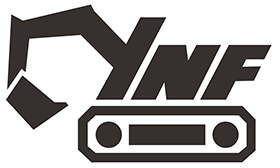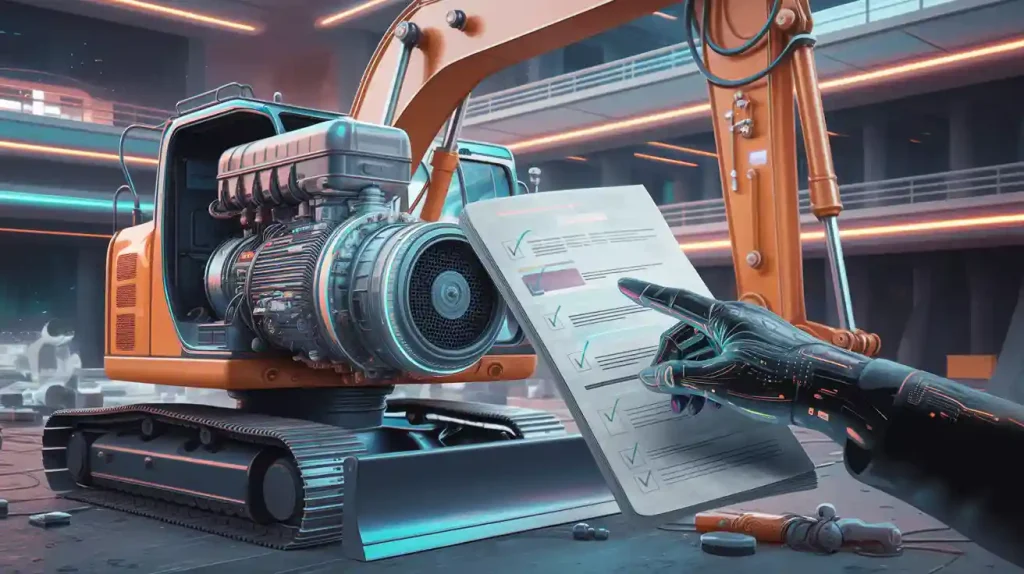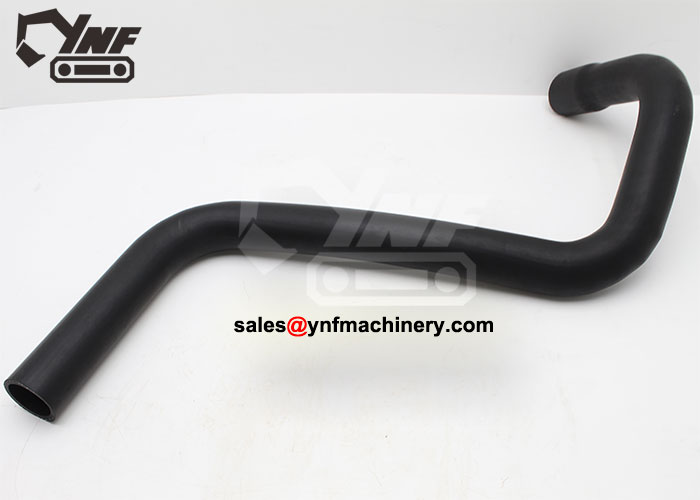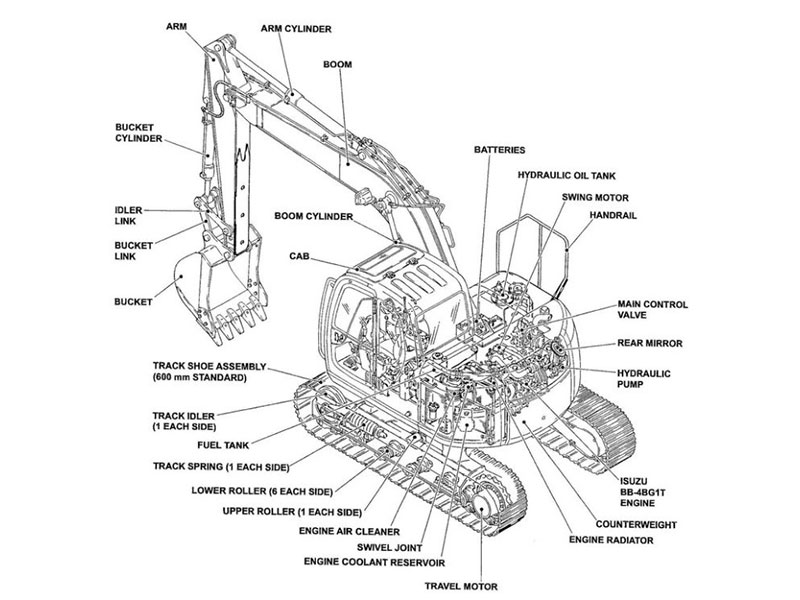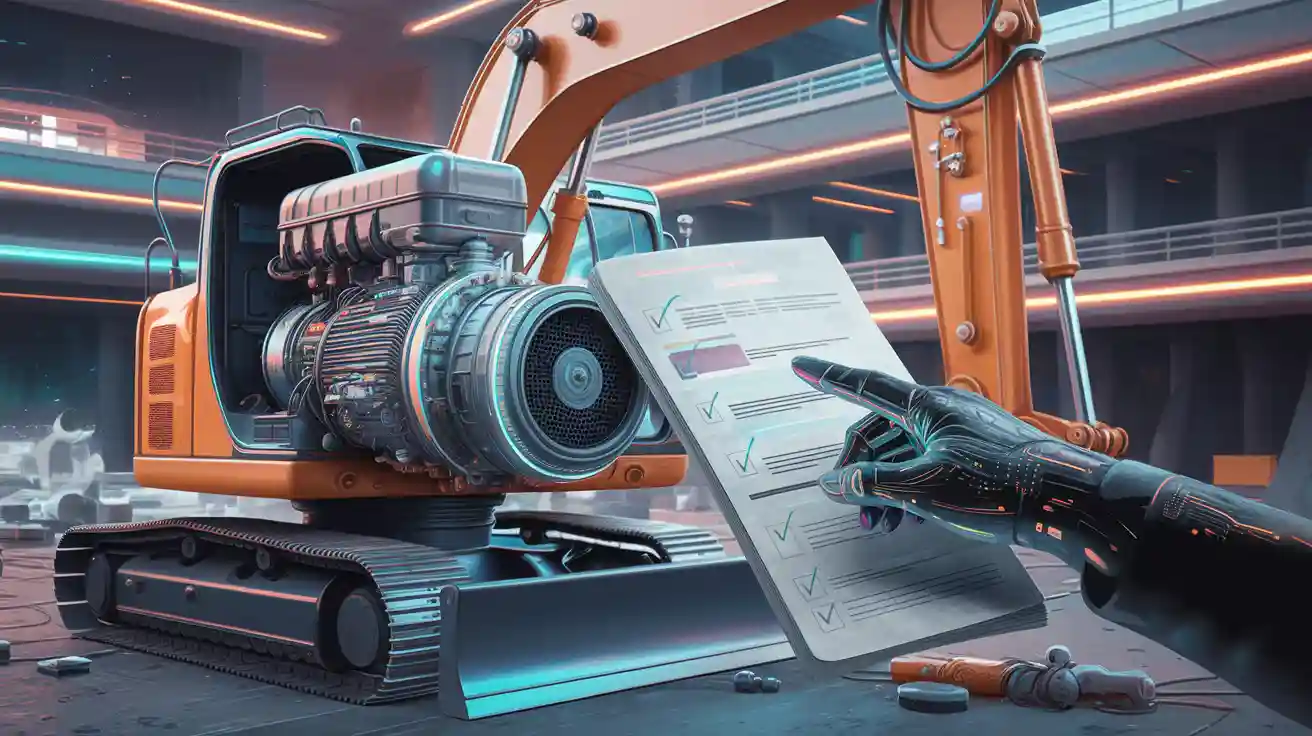
Choosing the right excavator blower motor can feel tricky. You must pick a blower motor that fits your excavator’s needs. This helps your machine work well. If you choose the wrong one, airflow may be bad. It could even hurt your machine. Look at the size, power, and how it fits. Check what your machine needs before you pick. Think about how easy it is to install. Noise level is important too.
Key Takeaways
Pick the correct blower motor for your excavator. This helps air move well and keeps the cab comfortable.
Look at your excavator’s manual before you buy a blower motor. Check things like model and voltage in the manual.
Use good materials for your blower motor. This makes it last longer and need less fixing.
Think about how loud the blower motor is when you choose one. A quiet motor makes work more pleasant.
Clean your blower motor and check its connections often. This helps it work well and last a long time.
Excavator Blower Motor Basics

Role in Excavators
Your excavator blower motor helps keep the cab comfy. It moves air through the HVAC system. This lets you stay cool in summer and warm in winter. When you turn on the AC or heater, the blower motor starts right away. You get fresh air and a steady temperature inside.
The blower motor is needed for moving air in the HVAC system.
It pulls air from return ducts and pushes it over heating or cooling parts.
This helps keep the inside temperature just right.
A good blower motor makes your workday better. You breathe cleaner air and windows do not get foggy. You can pay attention to driving your excavator.
Why the Right Choice Matters
Choosing the right excavator blower motor helps you feel comfortable. It also helps your machine work well. If you pick a motor that does not fit, airflow may be weak or noisy. The wrong motor can break fast and mess up the HVAC system.
Tip: Always look at your excavator’s manual for blower motor details before you buy a new one.
A blower motor that fits well lasts longer and uses less power. You spend less on fixing things and your excavator works smoothly. You also keep the HVAC system safe. Picking the right blower motor helps your machine do its job every day.
Identify Your Excavator’s Specifications
Model and Compatibility
First, find out your excavator’s model. Every model has its own size and shape. If you get the wrong blower motor, it might not fit. It could also not work right. Always look at your machine’s manual. You can also check the label on your old blower motor. This helps you pick the correct part.
Here is a table with some popular excavator models and which blower motors fit:
Excavator Model | Blower Motor Compatibility |
|---|---|
Hitachi ZAX120/120–6 | Certified for precise fitment and optimal performance. Compatibility confirmed by Hitachi specifications. |
Komatsu PC400-7 | Dual Voltage Compatibility (12V/24V) ensures universal fitment across Komatsu models. |
Tip: Using the right blower motor for your excavator model keeps your HVAC working well. It also helps you avoid expensive repairs.
Voltage and Power
Blower motors need the right voltage and power to work safely. If you use the wrong voltage, the motor might not start. It could even break. Most excavator parts have a label that shows the voltage. Some machines use 12V or 24V. Others use higher voltages for electric systems.
Check this table for some examples of voltage and power:
Brand | Model | Voltage | Battery Capacity | Runtime |
|---|---|---|---|---|
Caterpillar | 320 Electric | 600V | 256 kWh | Up to 8 hours |
Caterpillar | 301.9 Electric | 48V | 32 kWh | Not specified |
Volvo | EC230 Electric | N/A | N/A | Recharge in 80 minutes |
Always match the blower motor’s voltage to your excavator’s system. This keeps your machine safe. It also helps the blower motor last longer. If you do not know, ask an expert or look in your manual.
Types of Blower Motor

Common Variants
When you look for a blower motor, you will see many types. Each type moves air in its own way. It is important to know how each one works. This helps you pick the best one for your machine.
Here is a table that lists the main types of blower motors used in excavators:
Type | Description |
|---|---|
Axial | Moves air along the shaft. Works well even at low power. |
Diagonal | The impeller stays at the same angle. Air moves in the same direction as the shaft. |
Centrifugal | Uses spinning impellers to push air out. Makes air move faster and with more pressure. |
Cross flow | Pulls air from one side and blows it out at a right angle. Good for wide airflow. |
You will also find brushed and brushless motors. Brushless motors last longer because they do not have brushes that wear down. Brushed motors need more care and do not last as long.
Note: Brushless motors can work up to 10,000 hours. Brushed motors usually last between 2,000 and 5,000 hours.
Pros and Cons
Each blower motor type has good and bad points. You should think about what is most important for your excavator.
Axial motors use less energy and work at many speeds. They may not move air as far as centrifugal motors.
Centrifugal motors give strong airflow and high pressure. They can be bigger and make more noise.
Cross flow motors spread air evenly. They fit well in wide spaces but may not work in every cab.
When you pick between brushed and brushless motors, remember brushless motors need less care. You save time and money on blower motor replacement. Brushed motors need you to check and change brushes often.
Here is a table to help you compare how long motors last and how much care they need:
Motor Type | Lifespan | Maintenance Requirements |
|---|---|---|
Brushed Motors | Hundreds of hours | Needs regular care |
Brushless Motors | Thousands of hours | Needs little or no care |
If you want a part that fits well and lasts longer, OEM blower motors are a good choice. They match your excavator’s needs but may cost more. Aftermarket parts cost less and give you more options, but may not always fit as well.
Type | Advantages | Disadvantages |
|---|---|---|
OEM Parts | Good quality, perfect fit, and a warranty | Higher price, not always easy to find, fewer choices |
Aftermarket Parts | Lower price, easy to find, more choices | N/A |
Tip: Always check your excavator’s manual before you buy a new blower motor. This helps you avoid problems and keeps your machine working well.
Key Selection Criteria
Choosing the right excavator blower motor means looking at several important factors. You want a motor that lasts, runs quietly, and fits your machine. Let’s break down what you need to check before you buy.
Material Quality
The materials used in a blower motor affect how long it lasts and how well it works. High-quality motors use strong plastics and metals. These materials help the motor resist damage from bumps, heat, and moisture. You should look for motors made with ABS plastic and corrosion-resistant parts. These features keep your excavator blower motor working in tough conditions.
Material | Properties |
|---|---|
ABS Plastic | Impact resistance, lightweight |
Corrosion-resistant materials | Essential for durability in harsh environments |
A good motor with these materials will last longer. It will also need fewer repairs. This means you spend less time and money on blower motor replacement.
Noise Level
Noise can make your workday hard. A quiet blower motor helps you focus and keeps the cab comfortable. Manufacturers test noise levels using special steps. They use sound meters and measure from a set distance. They also record the highest readings and report them. Here is how they do it:
Step | Description |
|---|---|
1 | Use a sound level meter and record the highest value, ignoring short sounds. |
2 | For steady conditions, record one reading per point. |
3 | For moving tests, take at least three readings and average those within 2 dB. |
4 | Report the highest reading for steady tests and the highest average for moving tests. |
5 | For stationary tests, measure sound at 15 meters from the equipment. |
6 | For moving tests, measure at 15 meters from a major side surface. |
7 | Include test mode, conditions, microphone location, and surface details in the report. |
You should check the noise rating before you buy. Lower noise levels mean a better experience inside your excavator.
Tip: If you work long hours, pick a blower motor with a low noise rating for less fatigue.
Airflow and Size
Airflow tells you how much air the blower motor can move. Size matters because the motor must fit your cab and HVAC system. If you pick a motor that is too small, it will not move enough air. If it is too big, it may not fit or could use too much power.
Check the airflow rate in the product details.
Make sure the size matches your old motor and fits your excavator parts.
Look for a motor that balances airflow and energy use.
A well-sized excavator blower motor keeps the cab comfortable and uses less energy.
Efficiency and Reliability
Efficiency shows how well the blower motor uses power. Reliable motors save you time and money. You want a motor that works well and does not break often. Efficiency ratings for variable speed motors range from 40% to 71%. These motors use less energy than fixed-speed types. Load and working conditions can change how efficient the motor is.
Variable speed motors are 3% to 10% more efficient than fixed-speed motors.
High efficiency means lower energy bills and less strain on your excavator.
Reliability is just as important. Here are some ways to measure it:
Mean Time Between Failures (MTBF): Shows how long the motor runs before it fails.
Mean Time To Repair (MTTR): Tells you how fast you can fix the motor.
Failure Rate: Shows how often the motor fails over time.
Availability: Measures how much time your motor stays ready to use.
Overall Equipment Effectiveness (OEE): Checks how well your motor helps your excavator work.
Planned Maintenance Percentage (PMP): Tracks how much care you give the motor before it breaks.
You can also watch power use. If the motor starts using more power, it may have a problem. MTBF is very important for blower motors. It tells you how long you can expect the motor to last before it needs fixing.
Note: Always choose a blower motor with high efficiency and strong reliability ratings. This keeps your excavator running longer and saves money.
Performance and Durability
High-Quality Materials
You want your blower motor to last for years. Good materials help it stay strong. Makers use tough plastics and metals for blower motors. ABS plastic does not break easily. It also keeps the motor light. Stainless steel stops rust and keeps the motor safe. Other metals protect the motor from damage. These materials help the motor work well in rough places.
Here is a table that shows how each material helps:
Material | Benefit |
|---|---|
ABS Plastic | Stops breaking from hits |
Stainless Steel | Keeps away rust |
Aluminum Alloy | Strong but not heavy |
A blower motor with these materials will last longer. You will not fix it as much. You can finish more work each day.
Tip: Always look at the product details for material info before you buy a blower motor.
Environmental Resistance
Your blower motor deals with dust, water, and heat. These things can hurt weak motors. Makers build blower motors to fight these problems. Seals and coatings keep out dust and water. Special fluids help the motor run when it is hot or cold. This design makes the motor work well in any weather.
Excavator blower motors use pressurized fluid systems. This helps them work in hard places. You can trust your motor to keep going, even if the job site is dirty or wet.
Sealed bearings keep out dust and dirt.
Waterproof cases stop water from getting inside.
Heat-resistant parts protect the motor on hot days.
Note: Motors that resist tough weather last longer and need fewer fixes.
If you want your excavator to work every day, pick a blower motor made for hard jobs. You will see better work and less time fixing things.
Where to Buy a Blower Motor
OEM vs Aftermarket
When you look for a blower motor, you have two choices. You can pick OEM or aftermarket. OEM means Original Equipment Manufacturer. These motors are made by the company that built your excavator. Aftermarket motors are made by other companies. Both types have good points.
Here is a table to help you compare:
Feature | OEM Blower Motors | Aftermarket Blower Motors |
|---|---|---|
Source | Made by the original manufacturer | Made by many companies |
Branding | Well-known brands (like John Deere, Caterpillar) | May not have a famous brand |
Performance | Matches original specs | Can match OEM if you pick a good supplier |
Price | Usually costs more | Often costs less |
Availability | Sometimes hard to find | Easier to find |
Selection | Fewer choices, easy to pick | More choices, needs more research |
Age of Equipment | Best for new models | Good for older machines |
OEM parts often have longer warranties. Some brands give a 5-year warranty. Aftermarket parts may have short warranties. Some only last a few months or have no warranty.
If you want a perfect fit and a long warranty, choose OEM. If you want to save money or have an old machine, aftermarket motors can work. Make sure you pick carefully.
Finding Reliable Suppliers
You need a supplier you can trust. A good supplier helps you get the right blower motor. They also help you after you buy it. Use these tips to pick a good supplier:
Criteria | Description |
|---|---|
Adherence to OEM standards | Parts should meet original specs for quality and fit. |
Quality assurance certifications | Look for certifications like ISO 9001 for proven quality. |
Supply chain reliability | Reliable suppliers deliver on time and keep items in stock. |
Customer support | Good support includes help with installation and warranty. |
Positive customer reviews | Happy customers mean you can trust the supplier. |
Tip: Always check customer reviews and ask about warranty before you buy.
You can find suppliers online or at local stores. Make sure the supplier meets the tips above. This helps you avoid problems and keeps your excavator working well.
Installation and Maintenance
Professional vs DIY
You can choose to install a blower motor yourself or hire a professional. If you want the best results, you should follow a careful process. Professional installation uses clear steps to make sure the motor works well and lasts longer.
Remove the light gray and dark gray covers from the AC unit after taking off the storage cubbies.
Loosen the bolts on the covers and take them off to reach the fan motor.
Clean the area and check for dust. This helps the motor run smoothly.
Test the new fan motor before you remove the old one. Connect it and turn on the ignition to see if it works.
Unscrew three screws on the sides to take out the old motor.
Remember where the screws go and look at the seal on the new motor.
Put the new blower motor in the same spot as the old one. Secure it with the screws, but do not tighten them until all are in place.
Tip: If you do not feel confident, ask a professional for help. This can prevent mistakes and protect your excavator.
DIY installation saves money, but you must follow each step closely. Missing a step can cause problems with airflow or damage the motor.
Maintenance Tips
Regular care keeps your blower motor working well. You should check the motor every few months. Clean dust and dirt from the covers and fan blades. Use a soft brush or cloth to avoid scratching parts. Look for signs of wear, like strange noises or weak airflow.
Inspect wiring for loose connections.
Lubricate moving parts if the manual says it is safe.
Replace filters in the HVAC system to keep air clean.
Watch for water leaks near the motor.
A simple table can help you track your maintenance:
Task | How Often | What to Look For |
|---|---|---|
Clean covers | Every 3 months | Dust, dirt buildup |
Check wiring | Every 6 months | Loose or frayed wires |
Replace filters | As needed | Dirty or clogged filter |
Listen for noise | Monthly | Unusual sounds |
Note: Reliable suppliers like YNF Machinery offer blower motors designed for easy maintenance and long life.
Taking care of your blower motor helps your excavator stay comfortable and efficient. You avoid costly repairs and keep your machine ready for work.
You need to match your excavator’s specifications before picking a blower motor. Check the material quality too. This helps your machine work better and last longer. It also makes the blower motor more efficient. If you are not sure what to do, ask an expert or a trusted supplier for help. Taking things step by step keeps your equipment in good shape. It also helps you save money.
Tip: If you want good blower motors or advice, you can reach out to YNF Machinery.
FAQ
What signs show that my excavator blower motor needs replacement?
You may hear loud noises or notice weak airflow. Sometimes, the cab does not stay cool or warm. If you see these problems, check your blower motor. Replace it if you find damage or it stops working.
How do I find the right blower motor for my excavator?
Check your excavator’s manual for model and voltage details. Match these with the blower motor’s specifications. You can also look at the label on your old motor. This helps you pick the correct part.
Tip: YNF Machinery offers blower motors that fit many excavator models.
Can I install a blower motor myself?
You can install a blower motor if you follow the steps in your manual. Use the right tools and take your time. If you feel unsure, ask a professional for help. This keeps your excavator safe.
How often should I maintain my blower motor?
Check your blower motor every three months. Clean dust and dirt from the covers and fan blades. Listen for strange noises. Replace filters when needed. Regular care helps your motor last longer.
Where can I buy a reliable excavator blower motor?
You can buy a reliable blower motor from YNF Machinery. They offer quality parts and good customer support. Always check reviews and ask about warranties before you buy.
